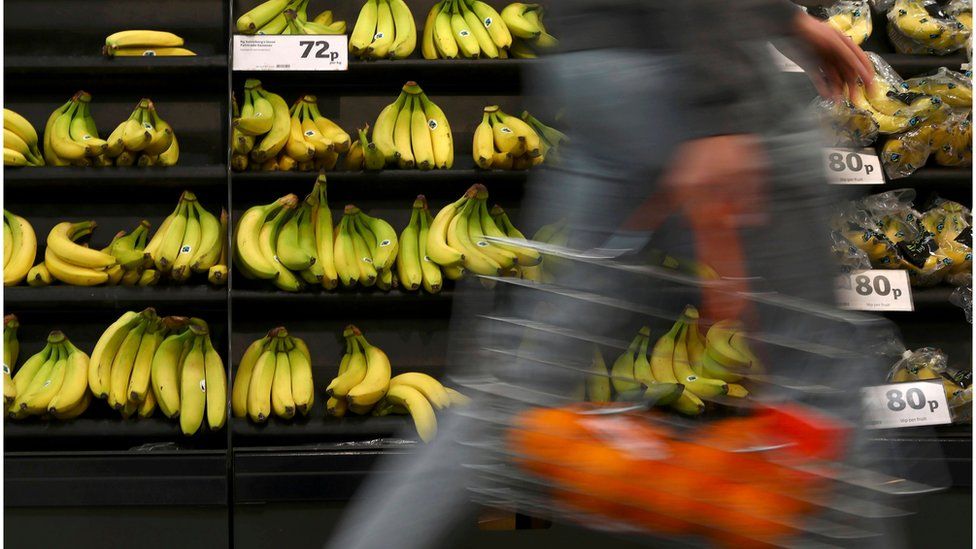Household food waste level 'unacceptable'
- Published

The level of household food waste in England is "unacceptable" and householders have a key role to play in reducing it, MPs have said.
The Environment, Food and Rural Affairs Committee said 7.3m tonnes of food was wasted in UK households in 2015.
The committee said shops should relax standards that prevent the sale of "wonky vegetables" to help cut waste.
And the next government should consider whether "best before" dates were needed, it said.
Committee chairman Neil Parish said: "One-third of food produced for human consumption is lost or wasted globally, and in the UK over £10bn worth of food is thrown away by households every year.
"Economically, food waste costs households hundreds of pounds a year and causes increased disposal costs to local authorities, pushing up council tax bills.
"Socially, it is a scandal that people are going hungry and using food banks when so much produce is being wasted.
"And environmentally, it is a disaster, because energy and resources are wasted in production only for the food to end up rotting in landfills where it produces methane - a potent climate-changing gas."
Food waste costs the average person in the UK £200 per year, the report said.
The average household lost £470 a year because of avoidable food waste, while those with children lost £700, it said.
The report said about two-thirds of the potential reduction in UK food waste would need to come from action at a household level.
It said it would be "hugely challenging" to reduce food waste further and would require "a considerable investment of resource".
In their report, Food Waste in England, the MPs said:
- The incoming government should establish a national food waste target for England.
- It should examine how lessons on food and avoiding waste could be incorporated into the curriculum.
- Waste reduction body Wrap, a charity which helps people and businesses reduce waste, should have sufficient money from the government to maintain its efforts in raising awareness.
- Food businesses and retailers over a certain size should be forced to separate food waste for collection.
- Supermarkets should be required by the government to publish data on the amount of food they bin. The report commended Tesco for already doing so and Sainsbury's for moving in the same direction.
- Retailers should increase the amount of surplus food they give away to charities.
- Retailers should improve their packaging by, for example, increasing resealable packets.
- Retailers should make food storage instructions clearer on packaging.
- The next government should work with restaurants on reducing waste by, for example, offering smaller portions, reducing the amount of sides, and encouraging the taking home of leftovers.
It also called for a review of whether "best before dates" were needed at all.
While "use by" dates refer to food safety, "best before" labels refer only to quality.
Foods will be safe to eat after the "best before" date, but may not be at their best.
The report said current date labelling was unnecessarily confusing, and guidance should be issued to the industry by the end of the year.
The report also highlighted the issue of suppliers' food being rejected for cosmetic reasons.
It said up to a quarter of apples, up to a fifth of onions and up to about an eighth of potatoes were rejected by supermarkets on cosmetic grounds alone.
- Published16 December 2016
- Published23 August 2016
- Published7 March 2016